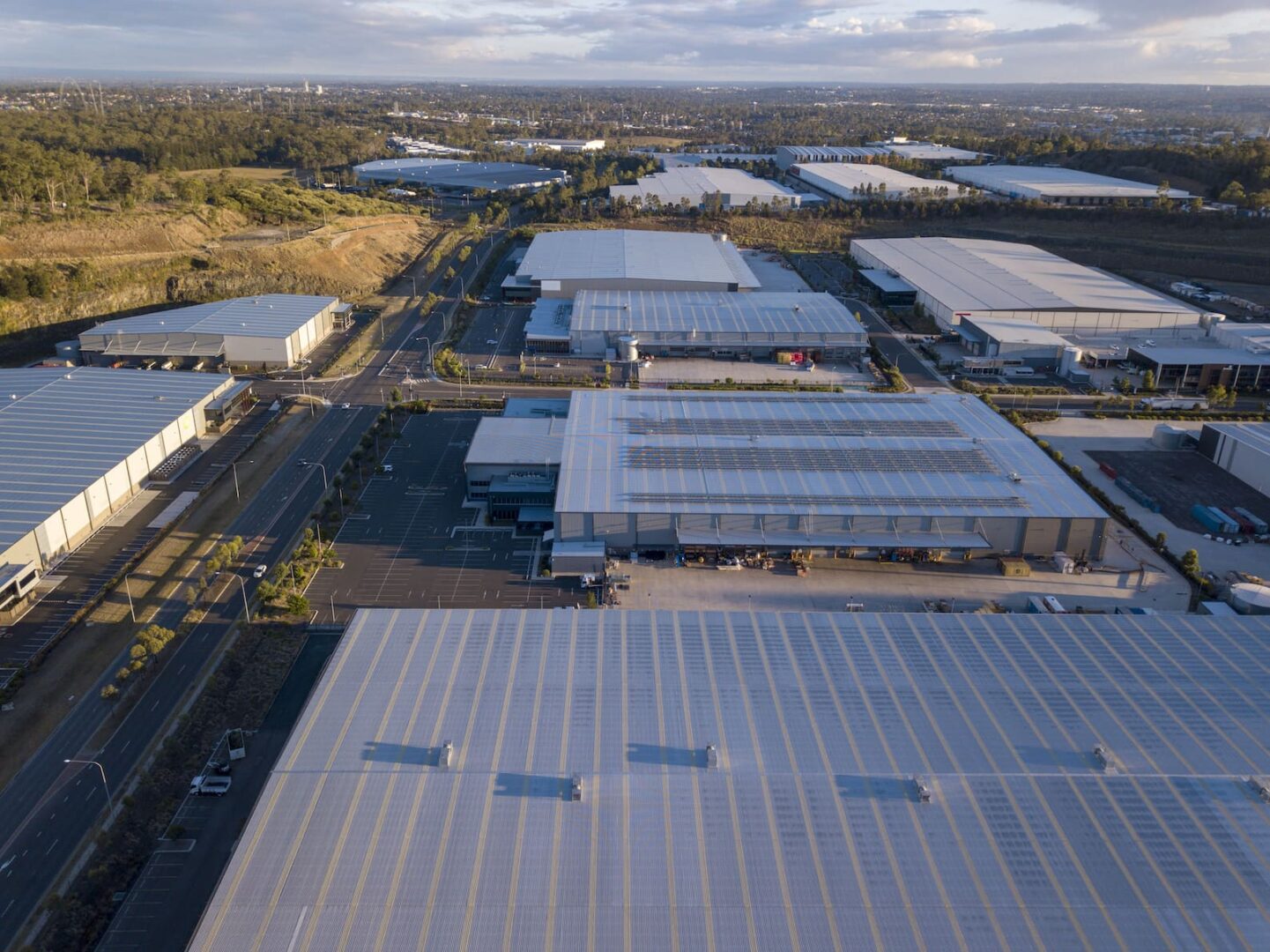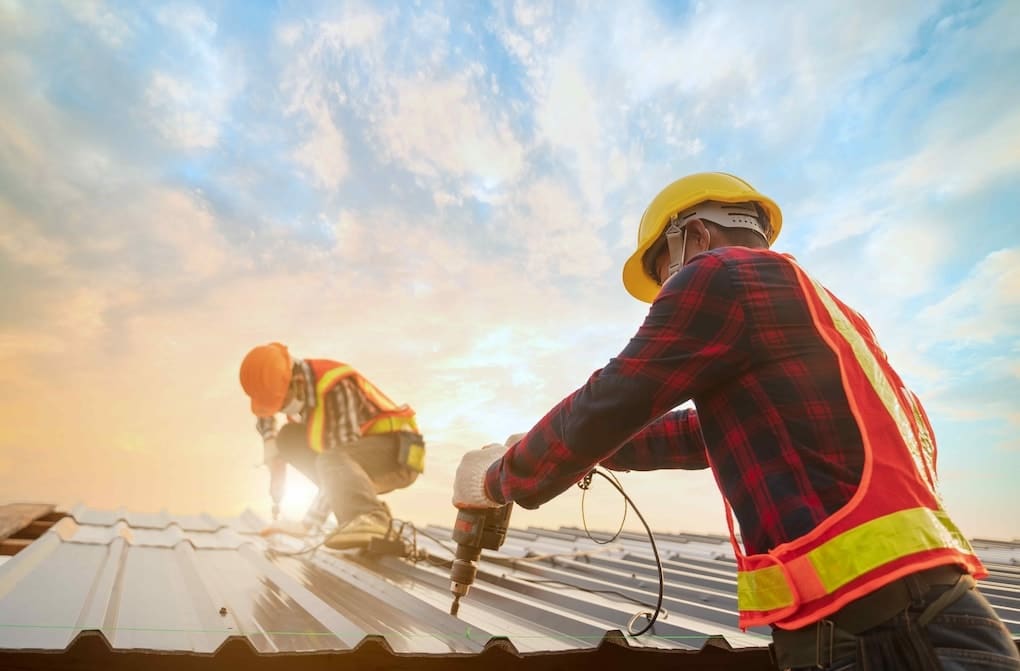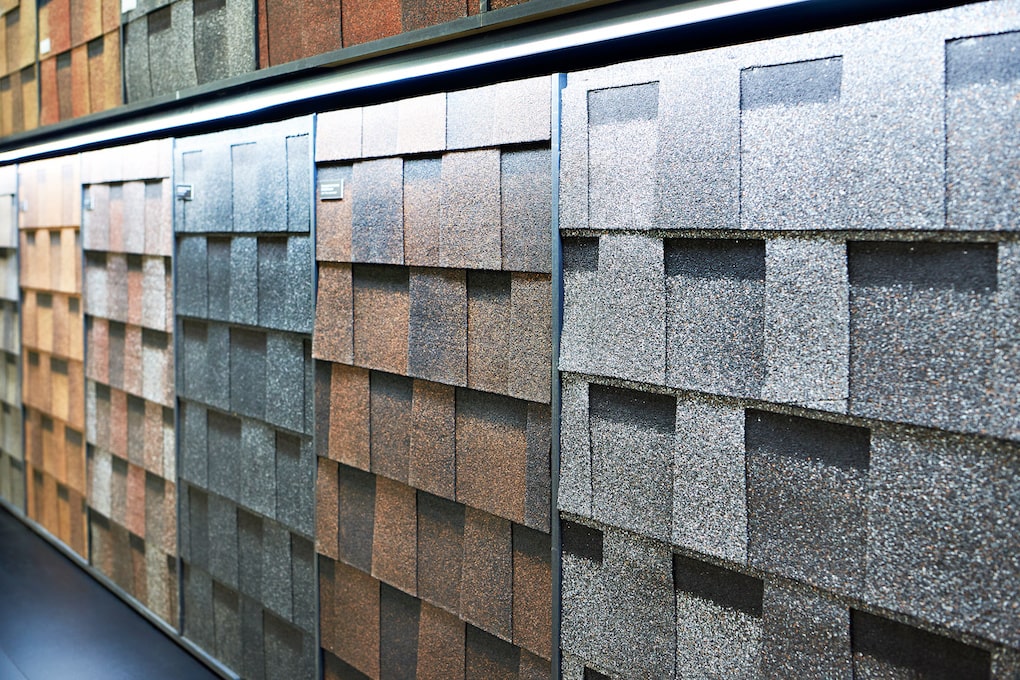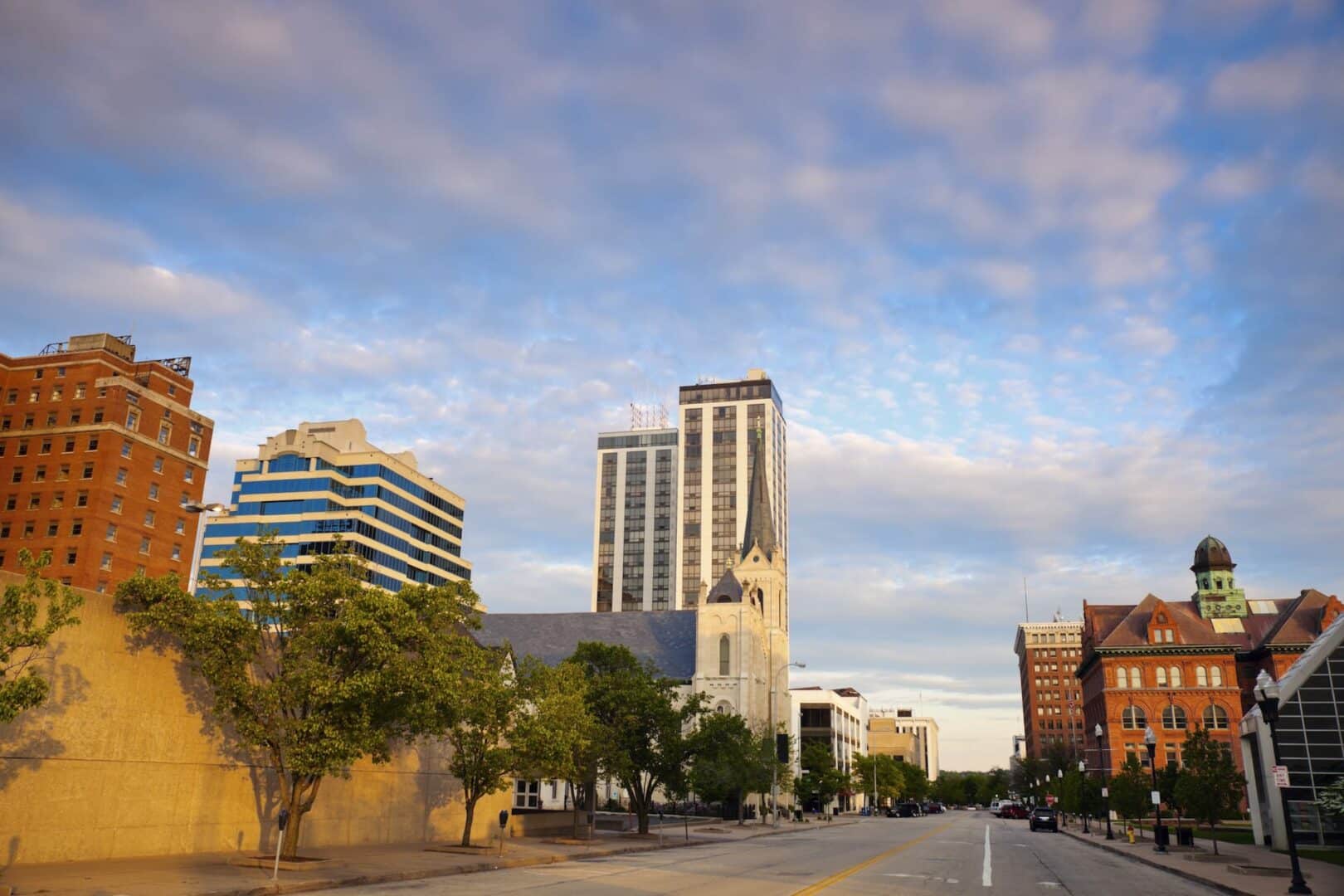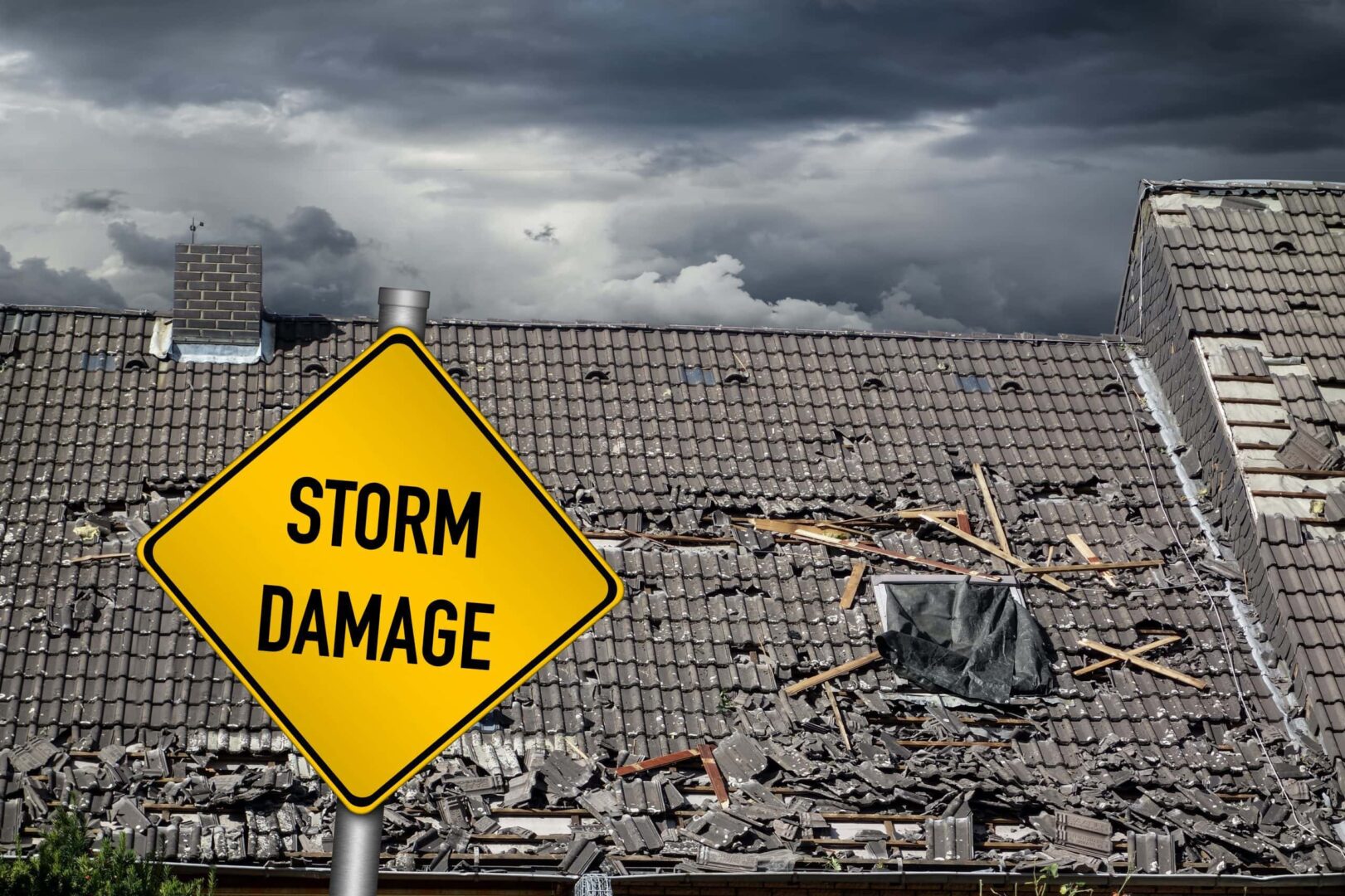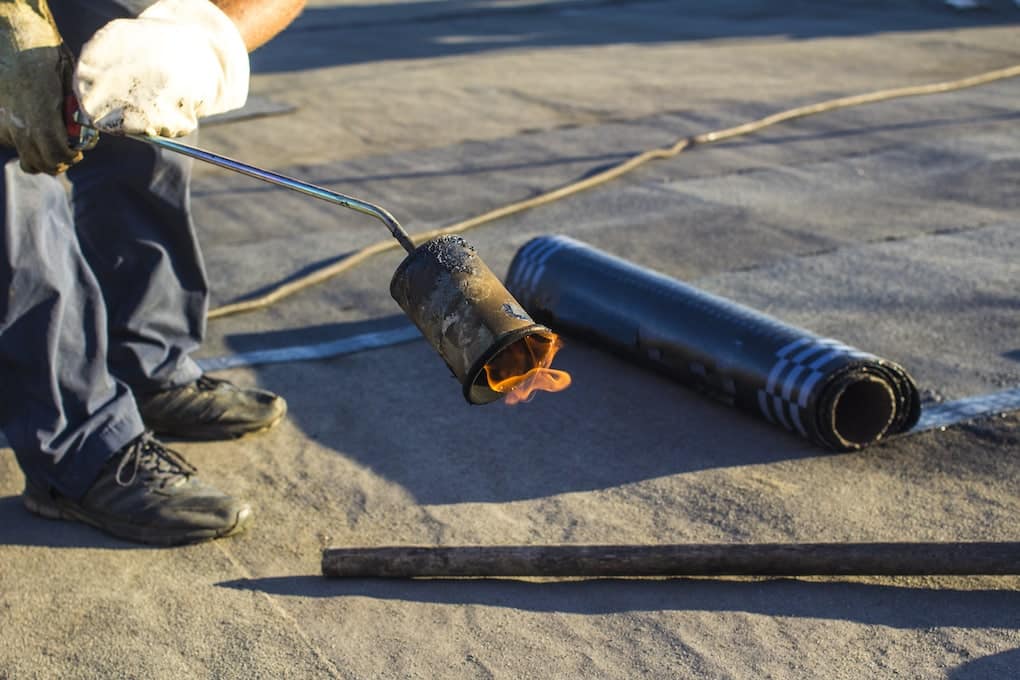
5 Best Flat Roof Materials For Your Business (Material Guide)
What are the best flat roof materials for your business? If you don’t know, then we have a guide to help. Many different materials can be used for roofs, and in this post, we will give an overview of some of the most popular ones. We’ll talk about their pros and cons so you can make a more informed decision on what’s best for your needs! What is a Flat Roof? A flat roof is not actually flat, but has a very low slope (for water drainage) and is most often found on commercial buildings like high-rises, strip malls, and big-box retailers. Flat roofs allow for a large area to be protected from the elements and even act as a functional place to have a rooftop hangout or community garden with green roofs. Either way, many different types of flat roofs provide varying benefits to the building owners and their residents. We will go over which ones are the best for your business, so you can worry about your team and not your roof. The Pros and Cons of Various Flat Roofing Materials There are a few very commonly used flat roofs for commercial structures including, but not limited to, modified bitumen roof, built-up roof (BUR), single-ply membranes, pvc roofs, and green roofs. We’ll touch base on the pros and cons of each flat roofing material so you can make an educated decision on which one works best for your budget, level of maintenance, and size of your roof. Modified Bitumen Pros and Cons Modified bitumen is an excellent option for commercial flat roofs. It is a multi-layer system that provides ample protection from water leaks and UV rays, so it won’t wear too quickly and can last upwards of 20 years with proper maintenance. The multiple layers consist of insulation, plyes (or base sheets), fiberglass or polymer membrane, an adhesive, and the surface layer, protecting the roof from UV rays and help to absorb heat. Two other significant advantages to this type of roofing are that it’s relatively inexpensive and easily installed. The downsides are the specific materials used in a modified bitumen system, which can be made up of asphalt or coal tar pitch, polymers, and other chemicals. The use of these materials means there could be environmental impacts and health hazards for workers on your site who install these roofs because it can create a lot of fumes. Another downside to this material is that it isn’t ideal for commercial roofs that get a lot of foot traffic. In addition, the modified bitumen layers can be easily damaged or worn away if it’s walked on or experiences a lot of debris consistently. Lastly, it absorbs a lot of heat in the summer months, so it can cause your AC system to work a little harder, thus upping your energy bills. Pros: Cons: Built-up Roofing Pros and Cons These roofs have several layers: an outer protective layer (like the modified bitumen mentioned above), an insulation board between two sheets of plywood called decking, and all covered with gravel before the insulation to provide a waterproof barrier. The pros of built-up roofs are that they’re relatively inexpensive, easy to install and maintain and provide an excellent slope for water drainage. One of the downfalls of BUR is the long period of time it takes installation (typically two days), which may not be ideal if you want a quick turnaround. This is due to it needing a few layers installed on one another until the overlapping layers are two to four plies thick. This can also add a lot of weight to the roof, which is another disadvantage, particularly if you don’t have a sound structure to withhold all that extra weight. Pros: Cons: Single-ply membranes Pros and Cons As the name suggests, this type of roofing has one layer—usually polyurethane or PVC with a thickness of 40, 60, or 90 millimeters. This means it’s thinner than some other types of flat roofs, so there’s more likelihood that moisture will seep through to your ceiling below, making them less durable in harsher climates. Single-ply roof membranes are lightweight, flexible, and easy to install; however, they are also susceptible to leaks and harsh UV rays. Instead of using Asphalt shingles like on a residential home, hot Asphalt is used to seal this type of flat roof deck in a commercial roof structure. Pros: Cons: Green Roof Pros and Cons Green roofs aren’t for everyone but they do actually work for both residential and commercial structures. Green roofs get installed on commercial businesses because it reduces the urban heat island effect by shading hot air from buildings during daytime hours and provides insulation to your building’s interior because vegetation lowers heating costs in colder climates. In addition, the plants installed on a green roof deck are often self-sufficient and don’t need a ton of maintenance unless you want a rooftop garden. One of the significant downfalls of green roofs is that they can be a little more expensive than other types listed here and are not as durable in harsher climates like snow regions where ice dams regularly form on low-sloping roofs. However, they aid in water runoff and create a thriving environment for local birds and insects to live while boosting your building’s energy efficiency. Pros: Cons: EPDM (ethylene propylene diene terpolymer) Roof EPDM is a material that’s typically used to create single-ply membranes with an elastic property. It has low upfront costs, which makes it a very common choice for price-conscious building owners. Installation for an EPDM rubber roof is usually very easy, they can often be completed in one day, and don’t require a ton of maintenance due to its high fire and UV resistance. Pros: Cons: As you can see, there are many material options for your commercial flat roof, each with its unique benefits (and downfalls). For example, if you’re looking for something affordable and low-maintenance, a single-ply or EPDM roofs could be a great option.


